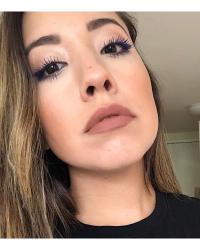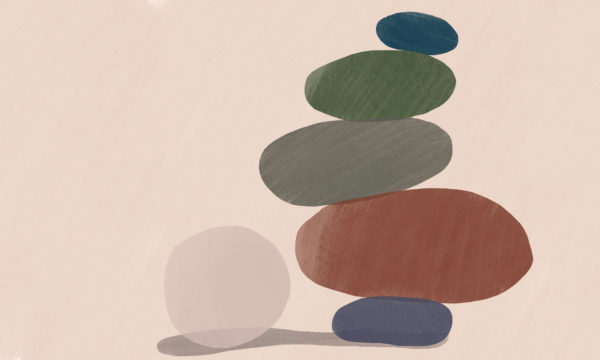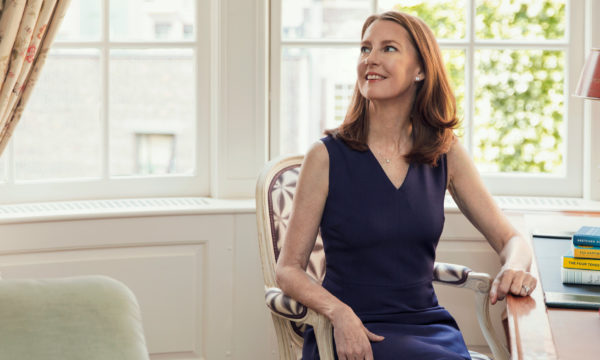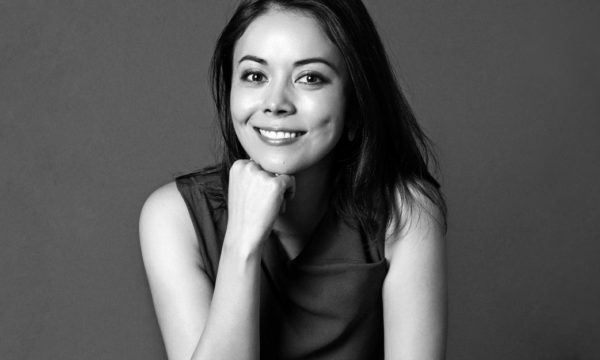
Shop This Look
How I Finally Learned to Separate Money from Happiness
“You have money,” I told myself. “What more do you think you deserve when so many people are suffering?”
I’m on a life-long quest to be okay with being okay. More than just okay, actually. I’m on a quest to be okay with being happy.
This concept has always been a struggle for me. When I lived in Texas as a child and teenager, I didn’t have safety or stability. My life was a stressful haze of moving apartments every six months; crafting excuses to my friends about why I couldn’t hang out with them (no car, no cash); and once I was old enough to work, trying to figure out how to hide my earnings so I could live on my own when I turned 18. For years, I was unable to obtain the mental space needed to even ponder happiness, and I looked down on anyone who could. It’s a defense mechanism I’m still working to let go of.
“Even when I was no longer in danger, in my bones, I felt like I was.”
When I got my first job in New York City, as a shoe industry editor, I made $900 every two weeks (after taxes), and my monthly rent was 55% of my income. In my experience, if your paycheck is too low, you can’t stop to ask yourself what would make you happy. Instead, you ask yourself which store sells the cheapest loaf of bread, which store sells the cheapest carton of eggs, and then you make two trips (on foot) to obtain them. You flirt too much with strangers at the bar to get free shots of whiskey. You have to call your ex-boyfriend for plane ticket money when you need to fly home in an emergency. You lose weight rapidly and try to convince yourself it’s because you’re young, glamorous, and living on your own—not because you can’t afford to eat. You’re not okay, but you feel like that is the least of your problems.
In the book The Body Keeps the Score, author Bessel Van Der Kolk, M.D. explains how your body holds onto trauma even if your rational brain knows you’re no longer in danger. “For real change to take place,” he writes, “the body needs to learn that the danger has passed and to live in the reality of the present.” Even when I was no longer in danger, in my bones, I felt like I was.
Want more M Dash?
Sign up for our weekly newsletter.
Thank you!

Years later, when I started making enough money that I no longer had to budget and could go to the grocery store and finally buy anything I wanted, I still couldn’t believe it, much as Sarah Jessica Parker (who grew up poor) lamented in her Grub Street diary. I couldn’t stop compulsively checking my bank account throughout the day. Like clockwork, I’d be zoned out watching TV and then remember the panic of not having any money. Opening my banking app and seeing that I had money available did little to calm me down. It was almost like a tic; I had to keep checking and checking, even though my conscious brain had the ability to rationalize that I had more than enough money to be “safe.” Somewhere deep inside, I was still squeezing pennies together, long after I had to.
This compulsiveness lingered in my career, too. Over the span of eight years, I had worked my way up through the ranks of being a magazine editor, and since I was making six-figures, my brain told me that of course I was happy. But in my heart, I was a writer first, and as any editor knows, the more you move up, the less you touch content beyond writing headlines and approving concepts. I liked being in control at work, but I wasn’t fulfilled. My name wasn’t on any of the articles I crafted and ideated. I attended meetings where I heard myself saying facts and figures that meant nothing to me in an effort to sound involved. I missed being creative, I hated attending Zoom meetings, and I kept berating myself for not being appreciative of having a job during an international pandemic. You have money, I told myself. What more do you think you deserve when so many people are suffering?
“I wish I could write one sentence about what worked for me in order to help whoever’s reading this, but the reality is, it takes time—and it takes dozens of therapy sessions that you hate being a part of because it hurts so much.”
Through working with my therapist, I learned how to ease up on myself a little. I wish I could write one sentence about what worked for me in order to help whoever’s reading this, but the reality is, it takes time—and it takes dozens of therapy sessions that you hate being a part of because it hurts so much. Eventually, with the help of my therapist, I did make the active decision to let myself be happy. When Covid-19 hit and I was no longer distracted by long commutes to the office or draining days interacting with my co-workers, I had the time and safety to ask myself what I truly wanted. And because I was child-less and was lucky enough to have only myself to focus on, I could work on getting answers.
My therapist worked with me on what is known as corrective experiences. Essentially, a corrective experience is when you usher in a new, positive memory to replace a negative memory of a similar situation. But in order to forget the negative memory (like checking your bank balance and seeing a low, troubling number) you must recall the negative memory, and, instead of pushing it away, you honor it, and then you consciously accept the new experience (having a comfortable amount in the bank) as your new reality. It sounds simple, but it has so much power to absolve you from obsessing about the negative past.

I started setting up freelance writing gigs while I still had my job, and in January of this year, I left the first safety I ever knew in my life: the full-time-job-with-benefits world. It’s still absolutely terrifying. During my first month freelancing, I made less than I was making at my full-time job and promptly panicked. My partner, who had a very different experience growing up than I did, reminded me gently: If it was easy, everyone would be quitting their jobs and doing what you’re doing. That statement is a corrective experience in and of itself, and he’s provided me with so many of those during our time together. When I start to worry about falling back into the danger of being financially unstable, I acknowledge to myself that it makes sense that I am scared. I have been through a lot, but now I have a safety net I built for myself. I am still a work in progress, but I’m working toward letting go of my past and letting my body and mind heal—and reminding myself that it’s okay to take it slowly every step of the way.








